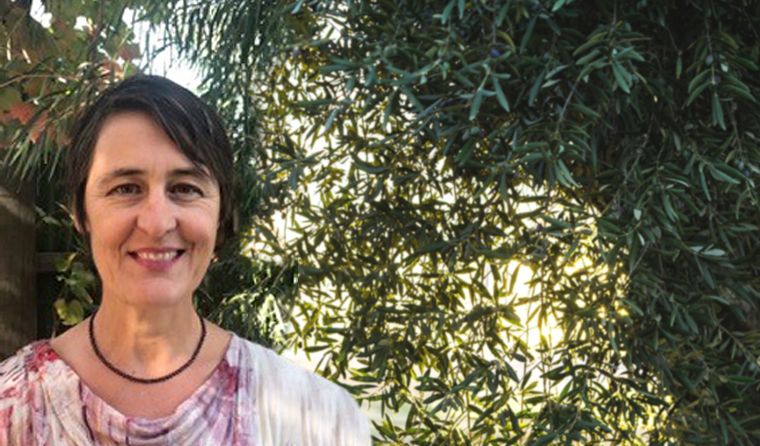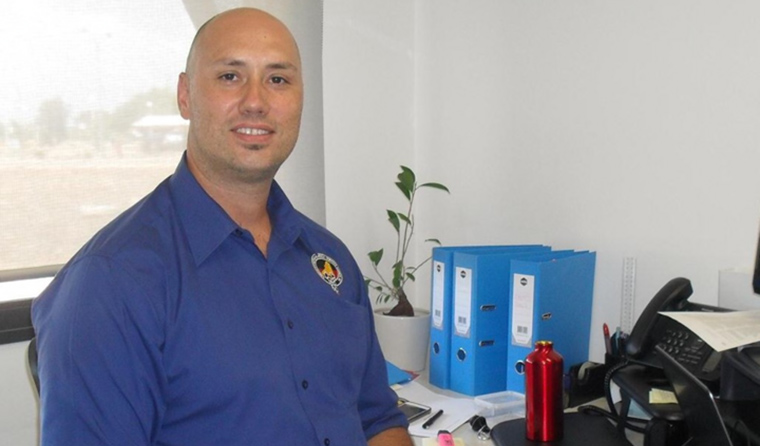Feature
‘Not a new tragedy’: Aboriginal and Torres Strait Islander suicides
With almost 80 deaths this year, including children as young as 12, what is behind this crisis – and what can be done to reduce it?
 Suicide rates in Aboriginal and Torres Strait Islander communities have reached emergency levels.
Suicide rates in Aboriginal and Torres Strait Islander communities have reached emergency levels.
Seventy-seven suicides so far this year – seven of those during Reconciliation Week.
More than half of those who died of suicide were under the age of 26, and 20 were children, some as young as 12.
Suicide rates in Aboriginal and Torres Strait Islander communities have reached crisis levels.
But what lies behind it?
Western Australia’s State Coroner Ros Fogliani provided a partial answer earlier this year when she released her findings from an investigation into a cluster of 13 suicides in the Kimberley region. She said the deaths – one which was of a 10-year-old girl – were shaped by ‘the crushing effects of intergenerational trauma’.
As Shadow Indigenous Affairs Minister Linda Burney said, this is ‘not a new tragedy’.
Generation to generation
According to Dr Mary Belfrage, GP and project advisor for RACGP Aboriginal and Torres Strait Islander Health, intergenerational trauma emerges when the effects of adversity such as poverty, neglect and abuse are passed from one generation to another.
‘If a parent hasn’t themselves experienced secure parenting and has a lot of life adversity, it’s one of the big risk factors for child maltreatment,’ she told newsGP.
Intergenerational trauma is not unique to Aboriginal and Torres Strait Islander peoples, but Dr Belfrage has found these communities experience a factor of trauma others do not.
‘That initial layer in Aboriginal communities is invasion and colonisation,’ she said.
 Dr Mary Belfrage has found that the effects of colonisation add a further layer to intergenerational trauma in Aboriginal and Torres Strait Islander communities.
Dr Mary Belfrage has found that the effects of colonisation add a further layer to intergenerational trauma in Aboriginal and Torres Strait Islander communities.
Professor Pat Dudgeon, a psychologist and Professor from the School of Indigenous Studies at the University of Western Australia, has found intergenerational trauma and suicide to be a legacy of colonisation for indigenous peoples the world over.
‘There’s an emerging story about people who have been colonised; usually the takeover of their lands has been quite brutal,’ she told newsGP. ‘There were genocides and people removed from country and treated like second-class citizens, which in itself is traumatic.
‘But there were also specific activities and policies that were put in place. In Australia that was the removal of children from their families, which was very widespread. And all that has got an intergenerational feature to it.’
Rob McPhee, Deputy Chief Executive of Kimberley Aboriginal Medical Services, has experienced the effects of intergenerational trauma in his own life and upbringing.
‘My great grandparents were removed from their families and placed into missions, and one of the big losses I can see throughout our family is in things like the way you show and display love,’ he told newsGP.
‘My great grandparents never showed that kind of affection. And so we’re just starting to see, in my generation, a real attempt to show supports and for those behaviours to become normalised rather than unusual and uncomfortable.
‘We’ve been fortunate in my family that issues around violence and abuse of drugs and alcohol have not been present … but the way people often manage those sorts of emotions or feelings is to turn to substances to repress them.’
Community needs
Ms Fogliani stated that existing suicide prevention and support services in the Kimberley are not adequate for the needs of Aboriginal and Torres Strait Islander communities, and the way these are provided needs to be rethought.
‘It may be time to consider whether the services themselves need to be co-designed in a completely different way, that recognises at a foundational level the need for a more collective and inclusive approach towards cultural healing for Aboriginal communities,’ she said.
Mr McPhee strongly agrees with this recommendation. He believes self-determination and connection to culture are vital to any effort made to reduce the suicide rate.
‘We have a unique culture and a unique identity, a unique history and future, and it’s important we are able to determine for ourselves what it means to be Indigenous and what it means to be a part of the Australian society,’ he said.
In Mr McPhee’s perspective, any measure that is introduced to assist the community must come from, or at least include, the community. This, he said, is where many earlier attempts have failed.
‘A lot of previous reports focused on what government could do around tinkering around system and services,’ he said.
‘And we do need resources, and we need to target those resources into areas that are important.
‘But we also need to have some tough and important conversations about how we empower and provide opportunities to communities to determine for themselves how they respond, and also learn from their mistakes.
‘At the moment, it’s a government-funded program in a community and if they don’t see it as working, they withdraw the funds. So the next program of activities, the funds are gone, the staff and the government department are gone, the knowledge of what worked and what didn’t work is gone, and we’ve got to stop that.
‘We’ve got to allow communities to make the decisions on what needs to happen, and to share the accountability.’
 Rob McPhee, Deputy CEO of Kimberley Aboriginal Medical Services, would now like to see concrete action in Aboriginal and Torres Strait Islander suicide prevention instead of further reports.
Rob McPhee, Deputy CEO of Kimberley Aboriginal Medical Services, would now like to see concrete action in Aboriginal and Torres Strait Islander suicide prevention instead of further reports.
Professor Dudgeon cited the work of psychologists Professor Michael Chandler and Professor Christopher Lalonde as pointing a way forward in preventing suicide in Aboriginal and Torres Strait Islander communities.
‘They looked at Canadian First Nation tribes and found that some communities had no suicide and others were right off the scale,’ she said.
‘So they examined the communities that had no or low suicide rates and coined the term “cultural continuity”. Translated into plain English, those communities had good self-determination. They had their own councils, they were in charge, they had agency over their community and their lives.
‘Another factor was that they were doing cultural reclamation activities. These could be simple things like building a long house or ensuring you had your cultural ceremonies happening.
‘These issues corresponded directly to suicide rates.’
‘A failure of accountability’
Dr Belfrage understands that issues such as poverty, abuse, housing and addiction are all determinants in Aboriginal and Torres Strait Islander suicide rates. But she also emphasises it is essential, if any change is to occur, to go back to the most fundamental issues.
‘It’s not hard to document a litany of neglect from successive governments, a lack of political will,’ she said. ‘Over and over again, Aboriginal people have eloquently articulated what is needed, and that’s not followed – and it keeps being portrayed as their failure.
‘The dismissal of the Uluru Statement from the Heart is symbolic of the lack of political will and the lack of accountability to these people who are citizens of this country.
‘It’s a lack of accountability, a failure of accountability to people.’
While Mr McPhee appreciates the findings of the latest coroner’s report, he hopes to see some genuine, effective action.
‘We’ve got over 600 recommendations around this issue in WA,’ he said. ‘There’s been lots written about it, we don’t think there needs to be any more. There’s consistent themes in all of the reports.
‘We want to see action around implementation of recommendations, and accountability in those implementations of the recommendations – a transparent reporting process of progress.
‘The latest coroner’s report went probably further than most and talked about issues around self-determination and the empowerment of communities, and I think that’s a really important place for us to start.’
Aboriginal and Torres Strait Islander health Intergenerational trauma prevention Suicide 'Suicide Trauma informed care
newsGP weekly poll
Health practitioners found guilty of sexual misconduct will soon have the finding permanently recorded on their public register record. Do you support this change?